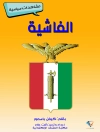This book is a comprehensive academic introduction of the natural conditions and cultural characteristics of the Chang Jiang River Basin. Describing in detail the geographical location and natural conditions of the main stream and the tributaries as the starting point, the book compares the Chang Jiang River Civilizations to other civilizations of large rivers of the same latitude. This book reveals the gradual deepening of the Chinese understanding the Chang Jiang River, introduces the cultural divisions of the river valley, and describes the evolution of the civilizations in the basin. At the end of the book, the author points out that there are many ecological problems in the Chang Jiang River valley, for which the Chinese people have taken many measures, such as water pollution control. Fishing in the main stream and important tributaries of the Chang Jiang is banned for at least ten years.
As a guide to analyze the natural conditions and cultural characteristics of the whole Chang Jiang River Basin, this book enables researchers and common readers to have a relatively clear and comprehensive understanding in a relatively short period of time. Putting the Chang Jiang River Civilization in the context of the world’s civilizations, this book makes it easier for readers to understand the uniqueness of the Chang Jiang River Civilization and its contribution to the cultural diversity of the world.
Inhaltsverzeichnis
Nature of the Changjiang River.- The Cognitive History of the Nature of the Changjiang River.- Overview of River civilization.- Cultural Division.- The Civilization Evolution.- Water Transportation.
Über den Autor
Tianyu Feng, born in 1942, is a famous scholar of Chinese cultural history, a senior professor of Wuhan University in humanities and social sciences, Head of Research Center of Chinese Traditional Culture, Vice President of Chinese Shixue Society, and member of the Social Science Committee of the Ministry of Education. He has been specializing in Chinese cultural history for a long time, and more than 30 monographs and compilation works have been published, many of which have been translated into English, Japanese, Spanish and Korean.Major works: The Spirit of Chinese Classics, The Outline of Chinese Cultural History, The Evolution of Chinese Culture, A Research on Feudalism, Critical Biography of Zhang Zhidong, History of the Revolution in 1911.Zhiliang Ma, born in 1987, has a Ph D in Sinology and a Post-doctor experience in Architecture. He is a member of ICOMOS International Scientific Committee of Cultural Routes. He specializes in Chinese culturalhistory.Major works: Etiquette of Qin, Old Buildings in Wuchang, Landmark of Wuchang, Yangshi Lei.Yuan Ding, born in 1973, has a Ph D in Architecture and a Post-doctor experience in Urban Planning. He is the co-holder of UNESCO Chair on Industrial Heritage, expert member of ICOMOS International Scientific Committee of Shared Built Heritage. He specializes in heritage conservation and cultural routes studies, and has published more than 10 monographs and compilation works.Major works: Cultural Routes: Between Tangible and Intangible, Kanyu (Feng-shui): the Forgotten Intangible Heritage in China, Chinese Architecture, Historical Buildings in Wuhan, Surveying and Mapping of the Ancient Buildings in Wudang Mountain.












